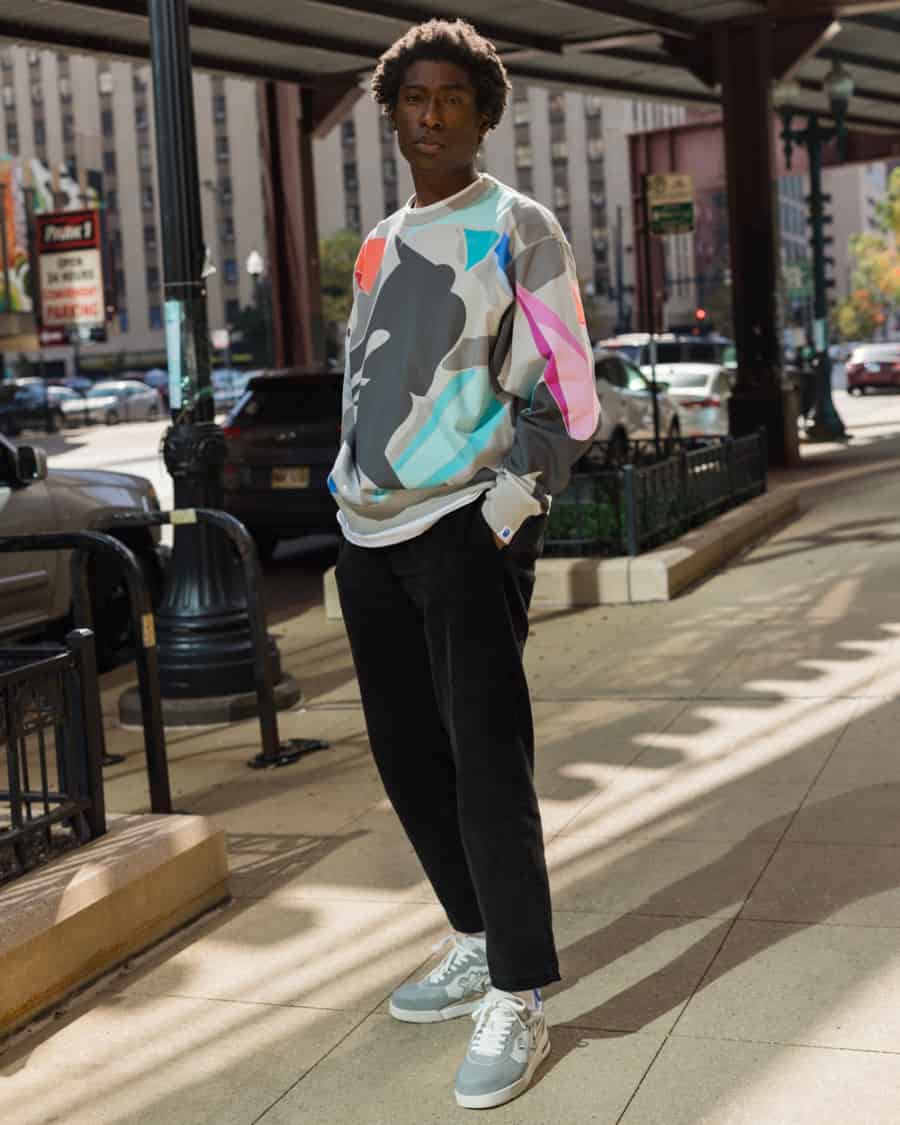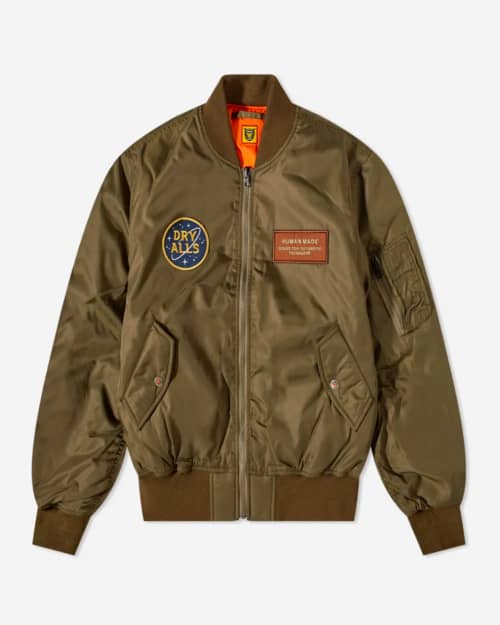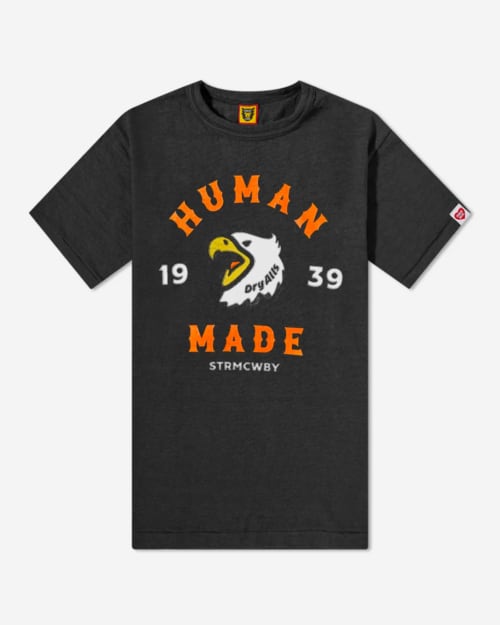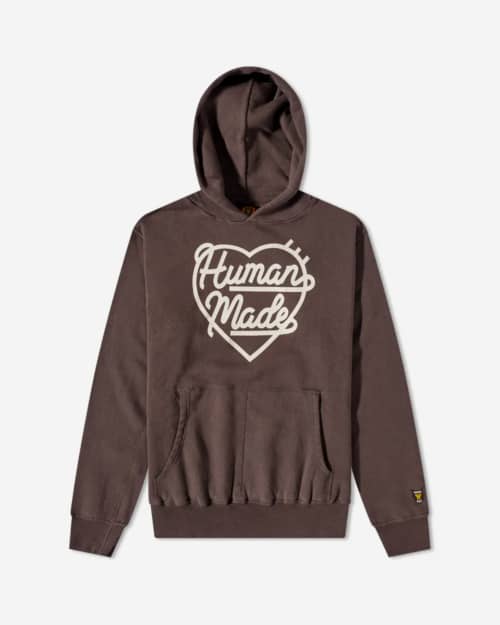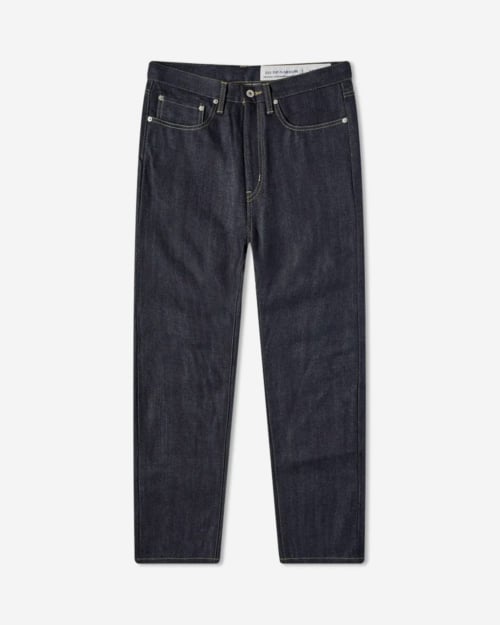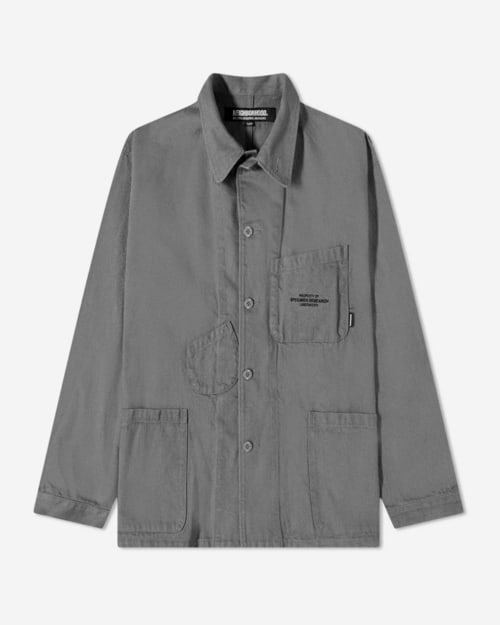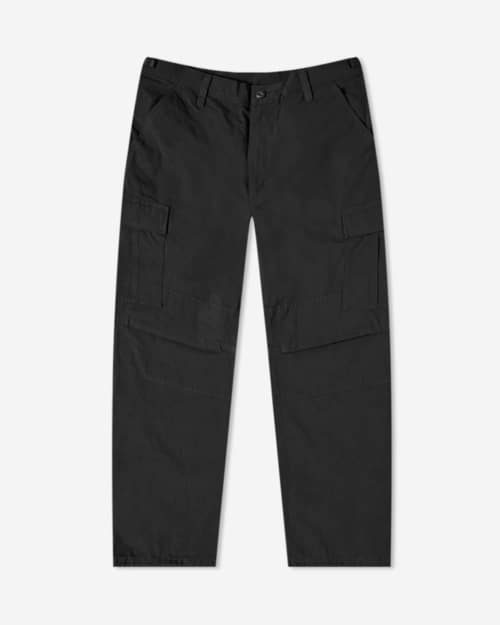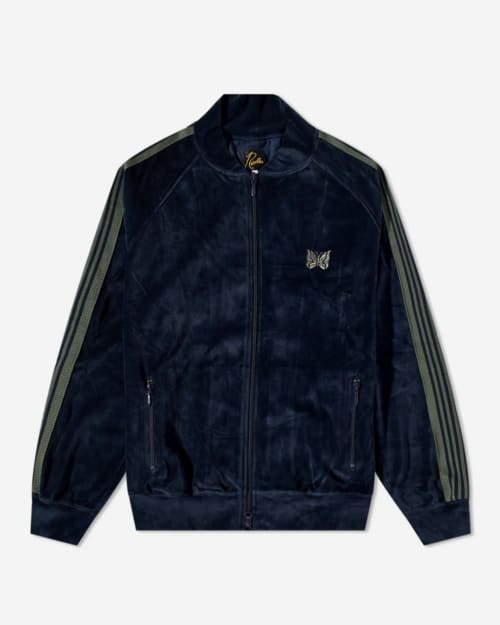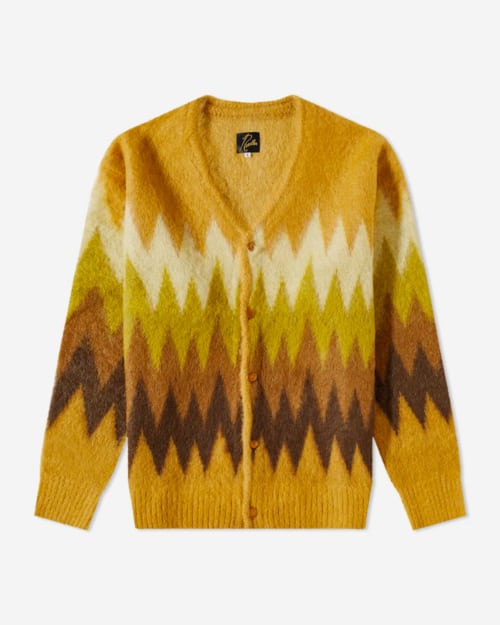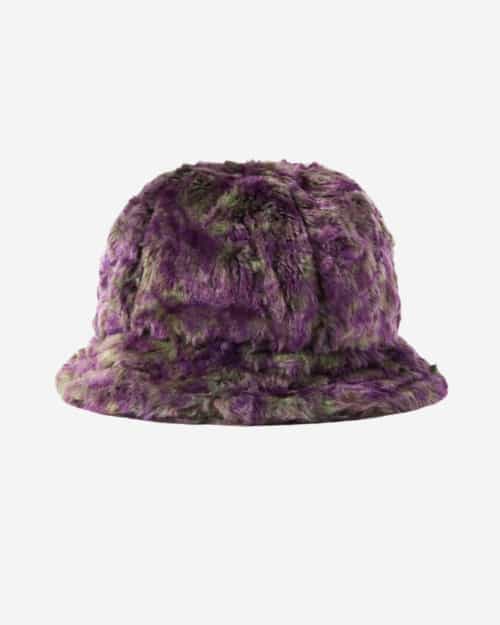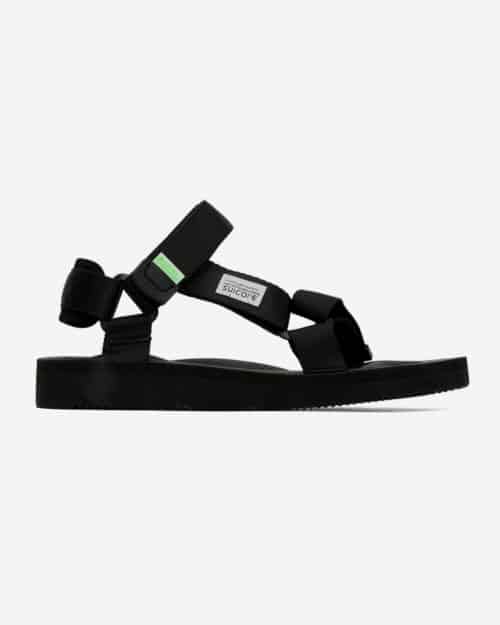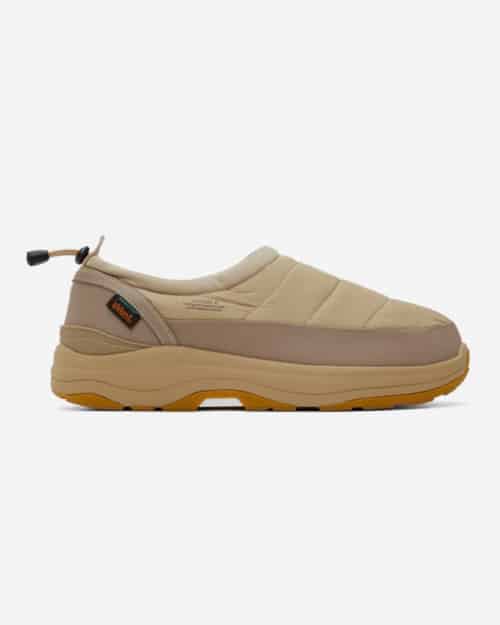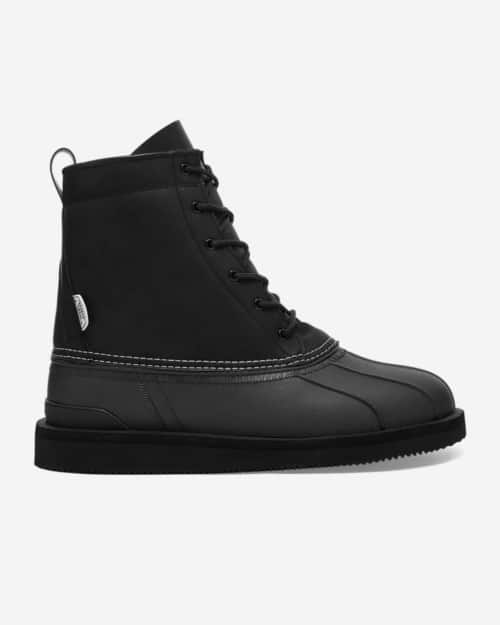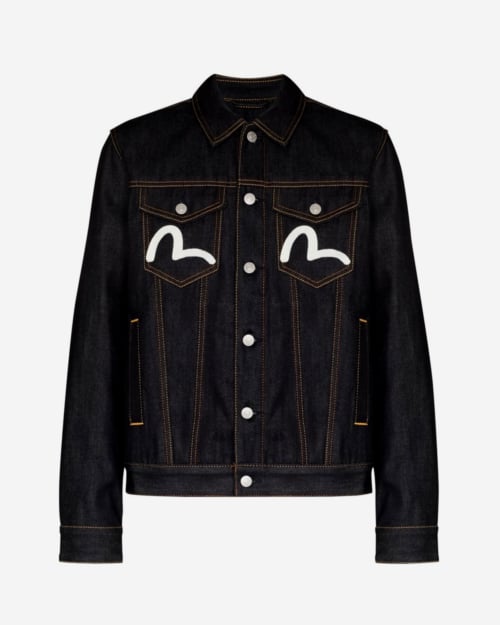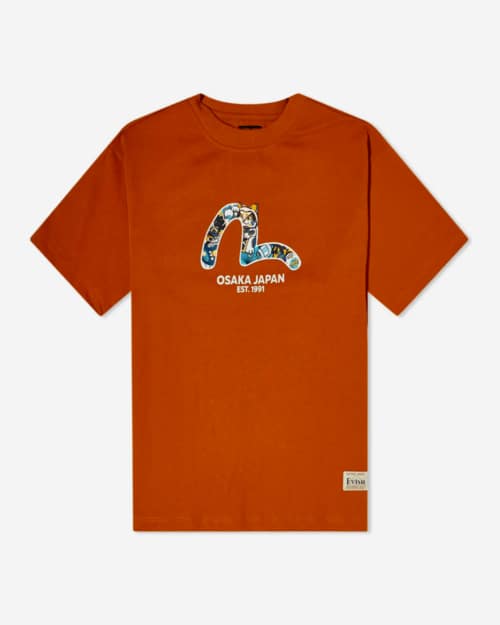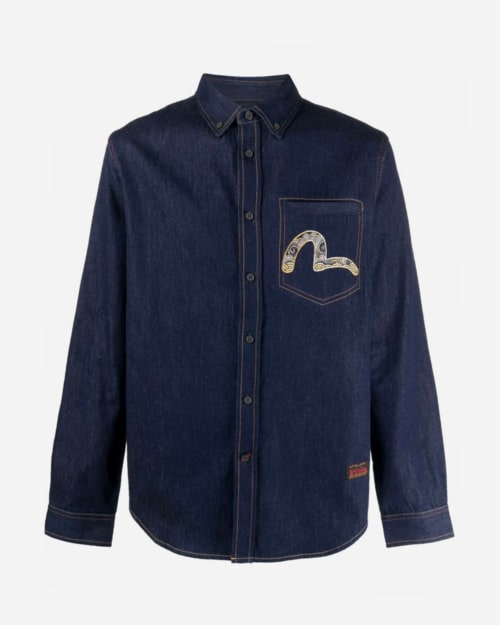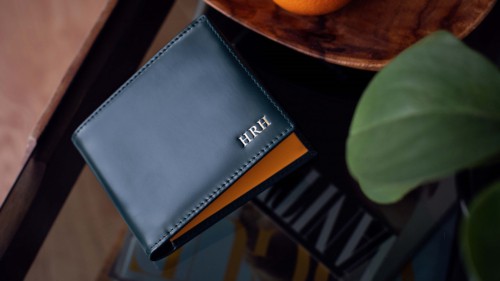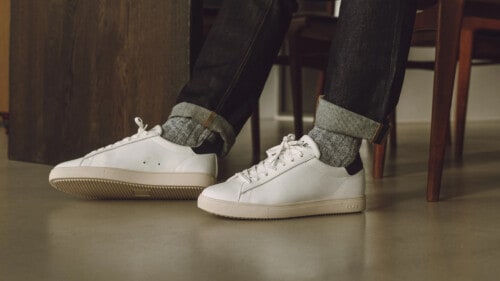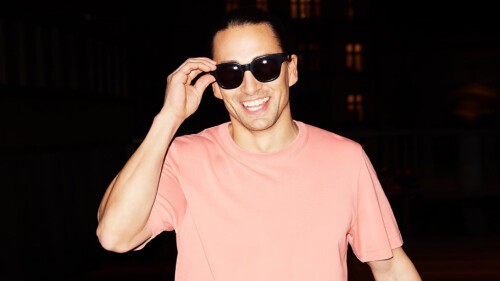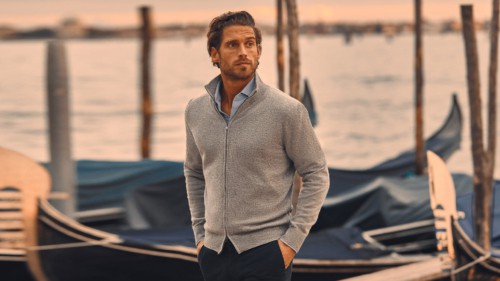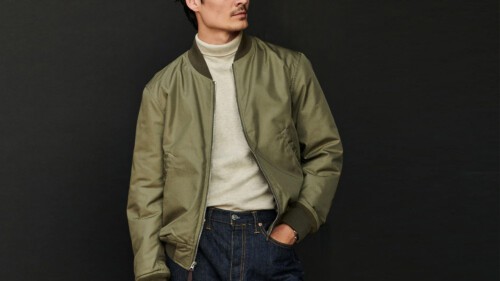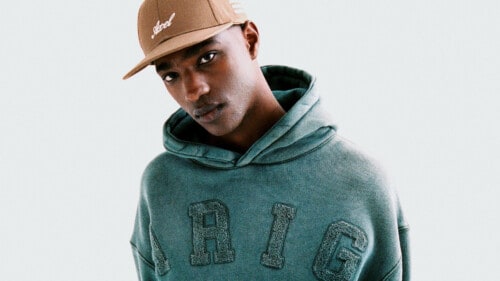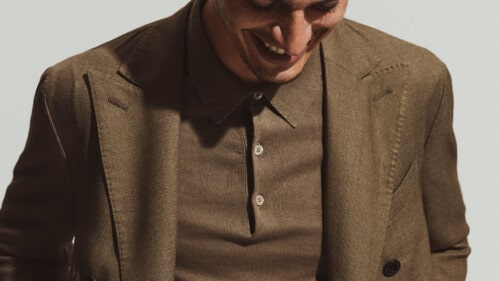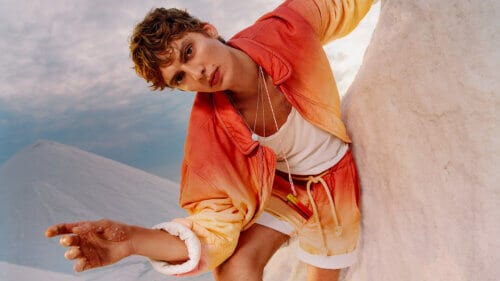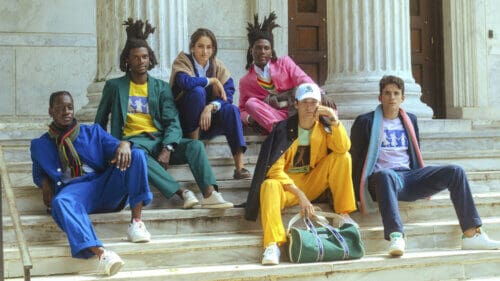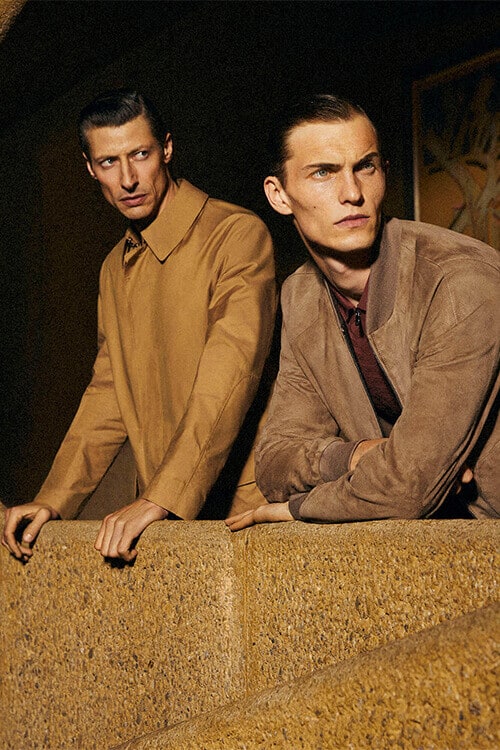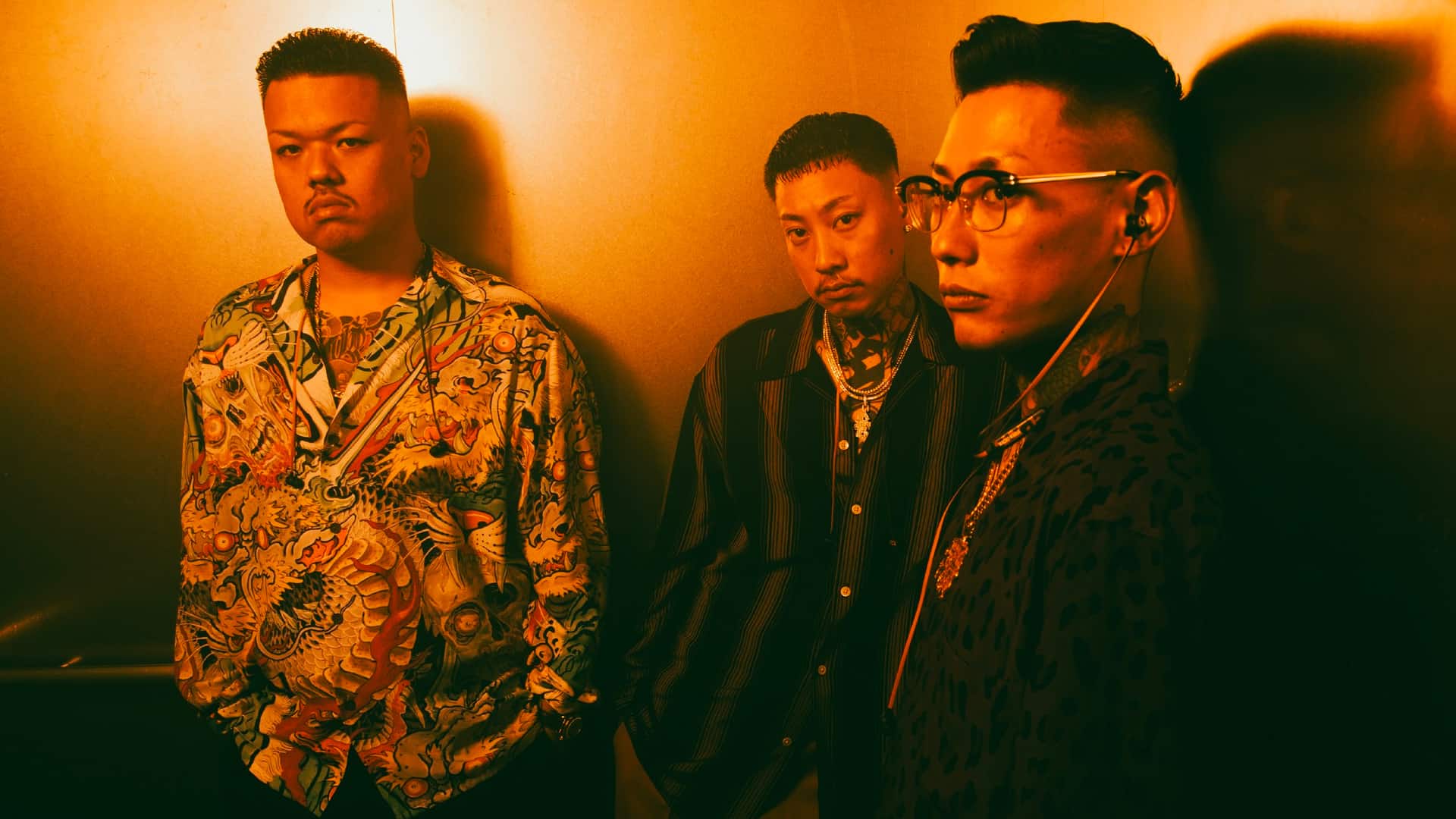
21 Japanese Streetwear Brands Every Hypebeast Should Know
Japan is famous for its own distinct take on streetwear and home to some of the most interesting, exciting, influential and innovative brands in the scene. These are the names to know.
Ever travelled by bullet train, got lost in a twenty-story Tokyo department store or marvelled at the diversity of the sandwich selection in a neighbourhood konbini? If so, you’ll know that Japan does not do half measures. It’s a country famous for forward-thinking design, aesthetic excess and attention to detail, which can be seen in everything from the architecture to the intricately modelled plastic food on display in restaurants. Another place you can see it first hand is in the fashion.
Japanese fashion is one hell of a rabbit hole. This is a nation of fanatical style subcultures that run the gamut from the American-obsessed ‘Ametora’ to the brightly coloured Harajuku girls immortalised by Gwen Stefani. It’s also famous for its own distinctly Japanese take on streetwear and home to some of the most interesting, exciting, influential and innovative brands in the scene.
What Is Japanese ‘Streetwear’?
It could be argued that the term ‘streetwear’, at least in its traditional sense, is a little redundant now. The garments associated with it – hoodies, sneakers, graphic tees, etc – are now so embedded in fashion that it’s impossible to differentiate between the two. And as menswear aesthetics continue to bleed into one another with increasing frequency the lines are becoming blurred further still.
When we talk about Japanese ‘streetwear’ brands, we’re using the term in its broadest sense. These aren’t necessarily brands exclusively making logo hoodies and dropping sell-out sneaker collabs (although some of them are), they’re simply the ones making cool, forward-thinking casualwear. Some are familiar names that are heavily linked with the traditional definition of streetwear. Others are smaller independent labels doing things their own way and helping to push things forwards.
One thing they all have in common is that anyone with an interest in men’s fashion will benefit from knowing who they are and what they do, so keep scrolling to find out.
A Bathing Ape
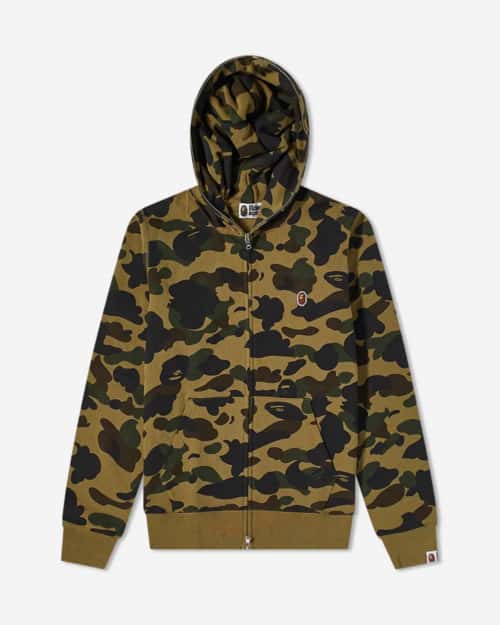
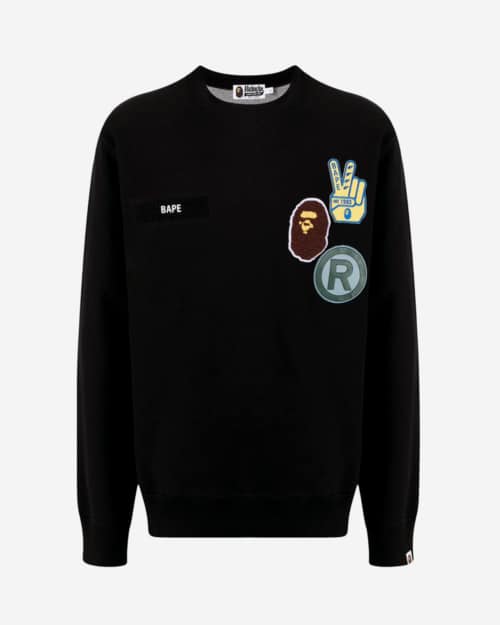
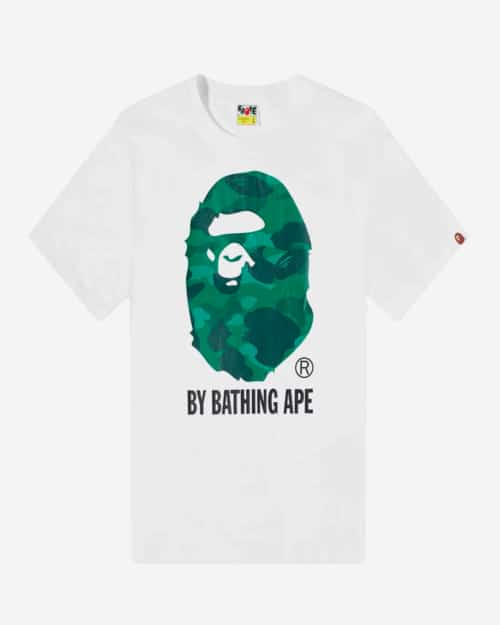
Founded by designer, DJ and record producer Nigo, A Bathing Ape (or BAPE) is a long-time favourite of hypebeasts around the world. Born out of the Ura-Harajuku movement, it became famous for its Nike Air Force 1-inspired ‘Bapesta’ sneakers, shark hoodies and brightly coloured camo.
The brand has been doing its thing for 30 years. In that time, it has opened more than 30 bricks-and-mortar stores, collaborated with the likes of Disney, Nintendo, Adidas and Pepsi, and could easily be ranked alongside the likes Supreme and Stüssy in terms of its influence and impact on the global scene.
Human Made
Human Made is another of Nigo’s brainchildren. It started off as an outlet for all of his sartorial creations that didn’t fit the BAPE mould, before growing into a distinct label in its own right.
Fans of the brand love it because the products still have Nigo’s trademark flair, but it’s delivered in a much more restrained and grown-up manner. At the core, it’s still a classic streetwear brand, offering predominantly hoodies, sweats, graphic tees and accessories.
PLAY Comme des Garcons
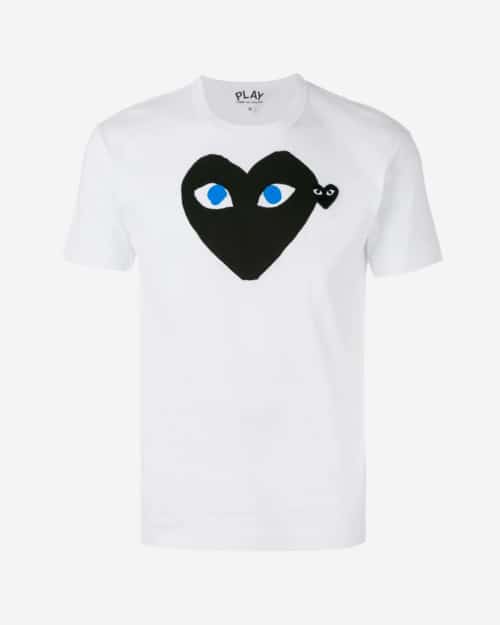
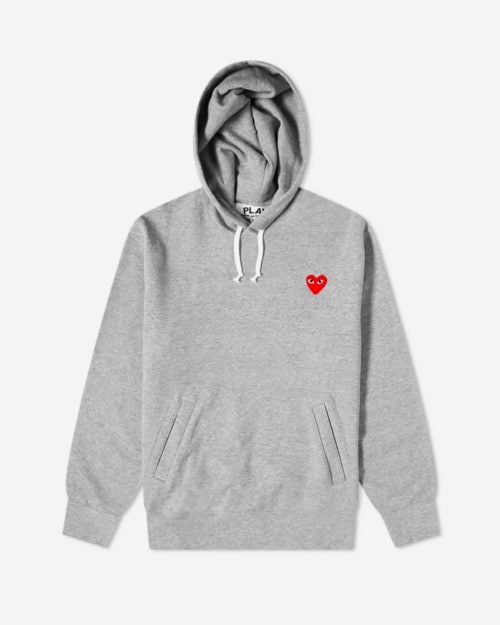
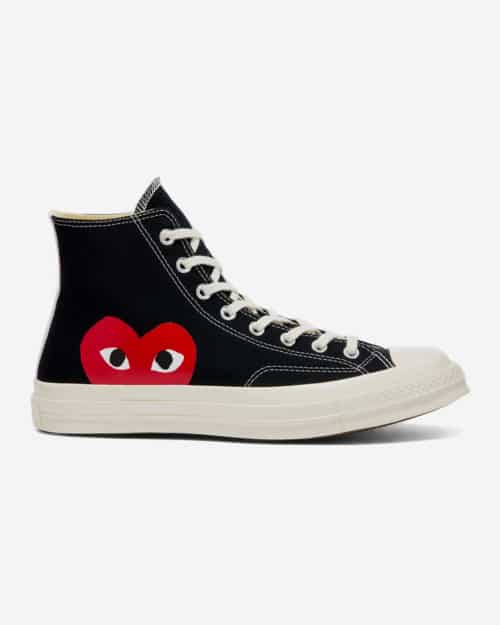
Comme des Garcons is arguably the most influential fashion brand to come out of Japan. Known for her weird-and-wonderful runway creations, boss Rei Kawakubo is a big name in the world of high fashion, and PLAY is her attempt to appeal to a younger, more streetwear-orientated audience.
The brand is built around staples such as hoodies and T-shirts, all bearing the brand’s iconic bug-eyed heart logo. A long-running collab with Converse has brought the label to the masses. The shoe in question is a Chuck Taylor All Star 70 printed with the PLAY heart logo, which has been popularised by rappers and celebs and has now reached a point of ubiquity in metropolitan areas around the world.
WTAPS
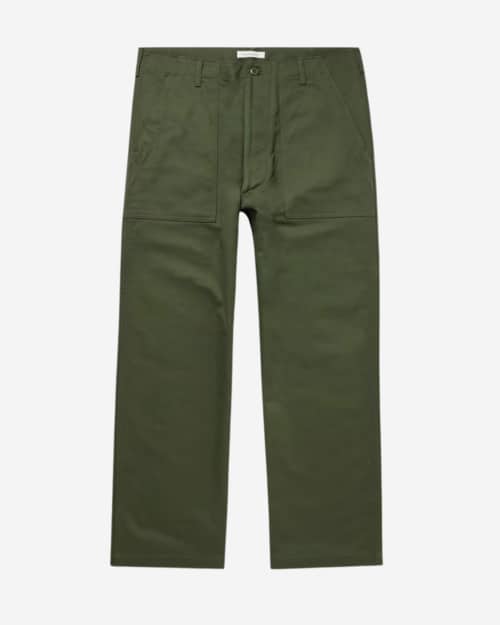
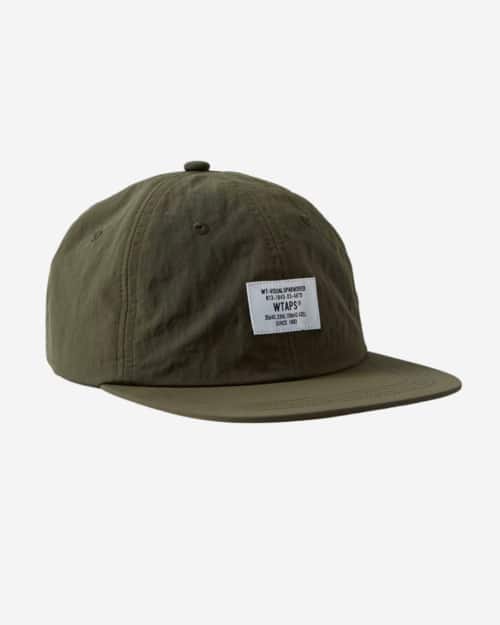
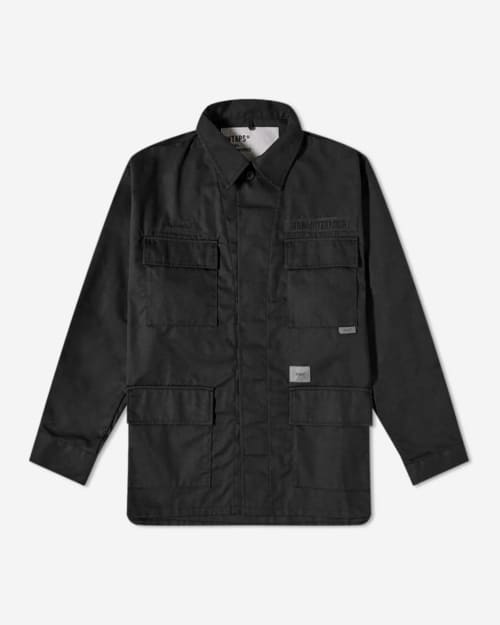
Founded in 1997, WTAPS (pronounced ‘double taps’, obviously) is one of the OG players in the Japanese streetwear scene. It’s known for its loose cuts, military-inspired designs and overarching utilitarian aesthetic.
There are a number of stockists in the West these days, but it used to be notoriously difficult to get hold of. The only way to grab an M-65 jacket or a pair of Jungle Stock cargos was to hop on a flight to Tokyo.
Even today, WTAPS is well-known in Japan for attracting Supreme-esque queues of shoppers on drop days.
Neighbourhood
Neighbourhood is another OG Japanese streetwear label that came in the same wave as the likes of BAPE and WTAPS. Founded by Shinsuke Takizawa (often referred to as Shin) in 1994, it draws heavily on American motorcycle culture and biker gangs, reimagining classic American garments like leather jackets, flannels and jeans, filtering them through a streetwear lens.
Collections have diversified a lot over the years but traditional Japanese denim featuring authentic natural-distress washes still makes up a large part of the range.
Undercover
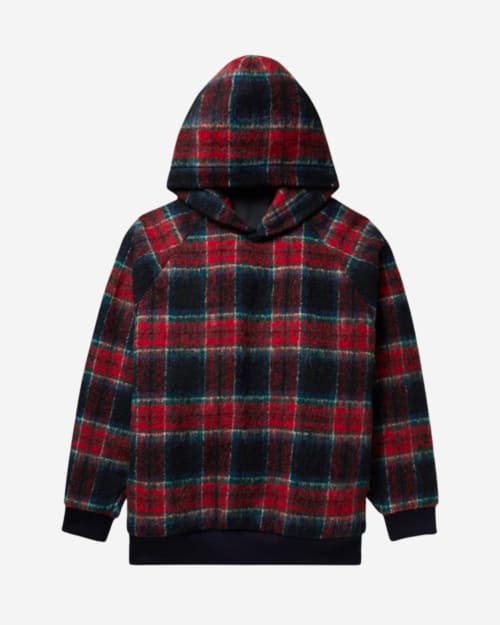
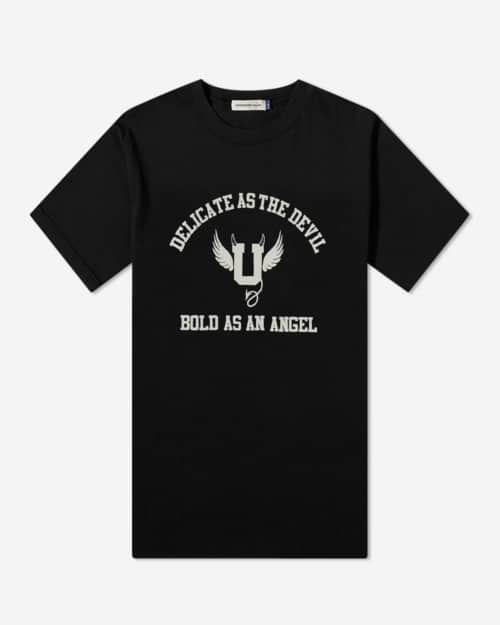
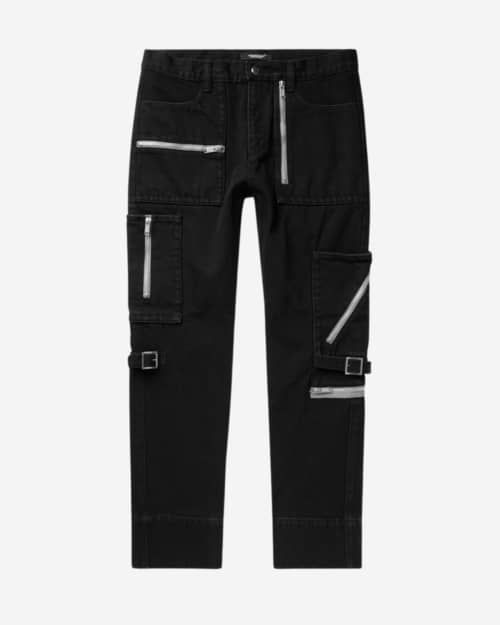
Another brand to emerge from the Ura-Harajuku movement of the early 90s, Undercover is arguably the most important and influential Japanese streetwear brand of them all. Created by the legendary Jun Takahashi, Undercover takes a punk approach to streetwear, creating clothing that’s designed to disrupt.
The label straddled the line between streetwear and high fashion long before the likes of Virgil Abloh rose to prominence, offering a luxury spin on garments like tees and hoodies, while also curating forward-thinking Fashion Week runway shows.
Cav Empt
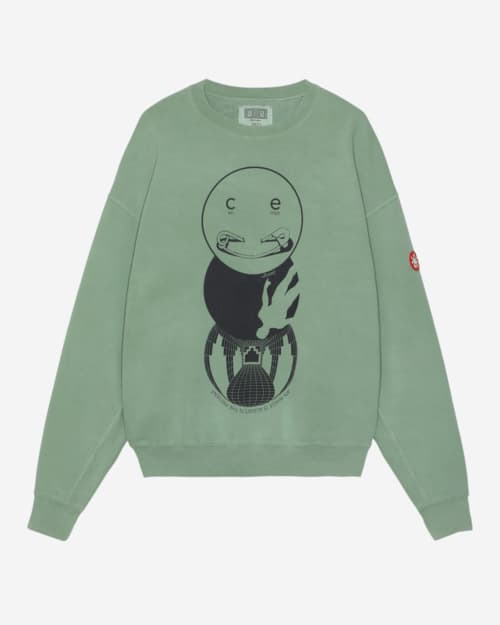
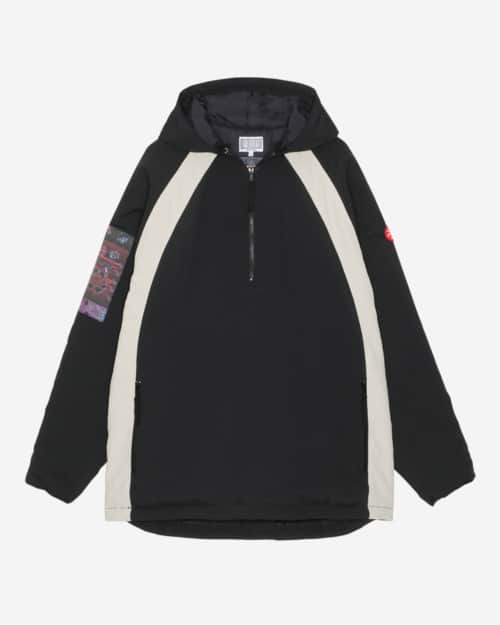
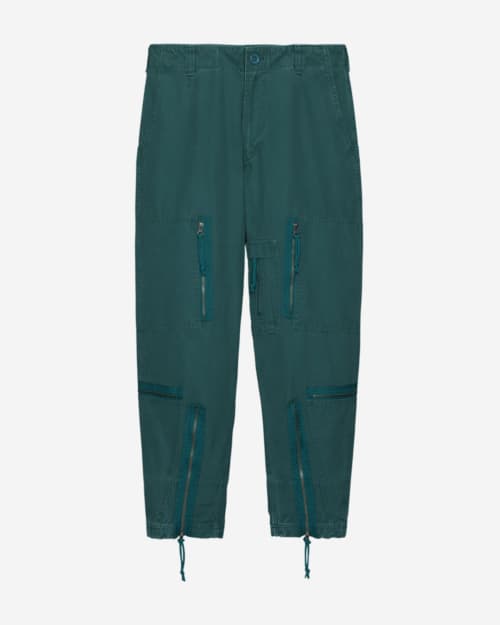
The brainchild of BAPE alumni Toby Feltwell and designer SK8THING, Cav Empt was born out of the pair’s desire to continue working together after BAPE was sold. Design-wise, the brand blends elements of skateboard fashion and sportswear, often infusing them with bold retrofuturist graphics.
The founders have deliberately kept Cav Empt low key, choosing to only sell their clothes in around 100 stockists worldwide. They’ve previously stated that the brand has never been about turning a profit, it’s just a creative outlet for a group of friends who want to make cool things together.
Kapital
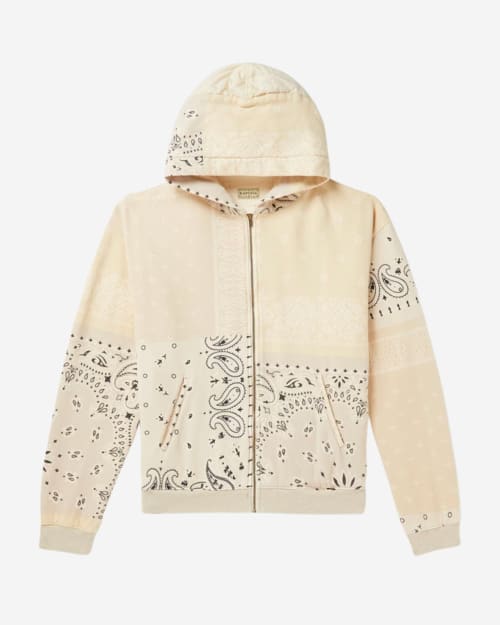
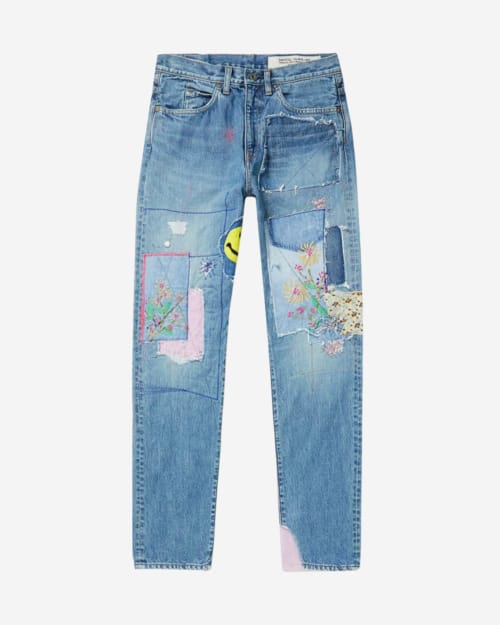
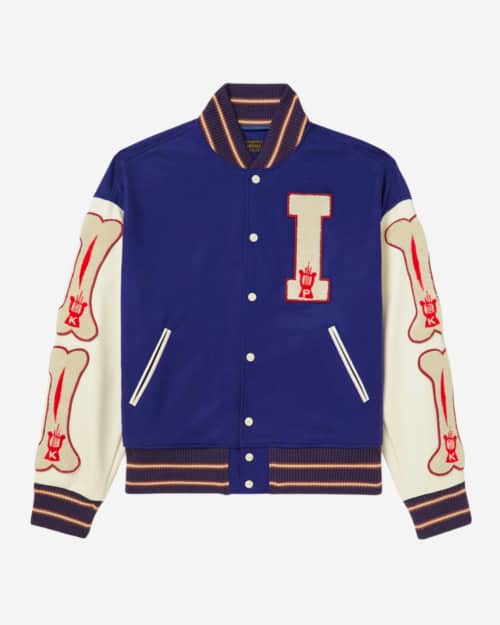
Kapital started life in 1985 as a sewing and dyeing operation that gradually grew into one of the most respected, authentic Japanese denim brands in the world. In later years, it became known for more than just jeans, developing a signature cut-and-sew aesthetic and drawing inspiration from mid-century American iconography and the West Coast hippy movement of the 60s.
Today, some of the brand’s most recognisable works are its patchwork jeans, intricately patterned Damask fleeces and its psychedelic smiley face logo.
Needles
Needles is one of several offshoot brands from Nepenthes, a menswear store that started out importing cult American brands into Japan. Nepenthes was run by Keizo Shimizu and Daiki Suzuki and birthed a number of in-house labels over the years, some of which have gone on to achieve huge success. Needles is one such example.
The clothes can be pretty out there, often boasting unusual fits, offbeat patterns and downright bizarre textures, but there are also some staple pieces, like the tracksuits, which have helped bring the brand to a wider audience.
South2 West8
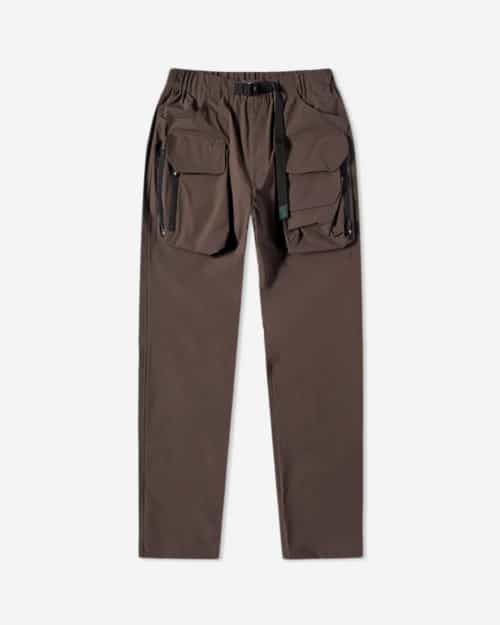
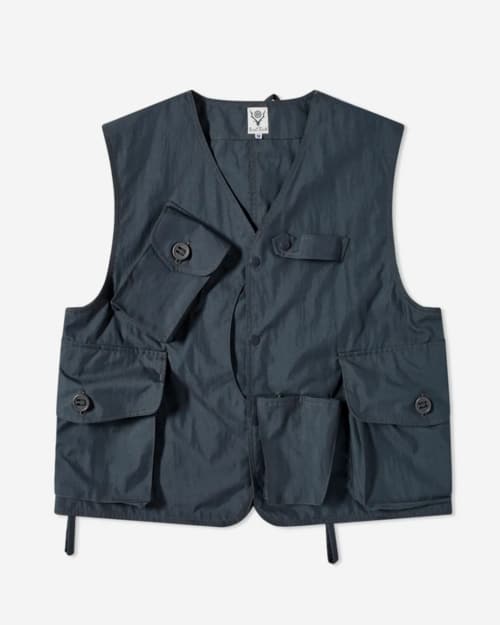
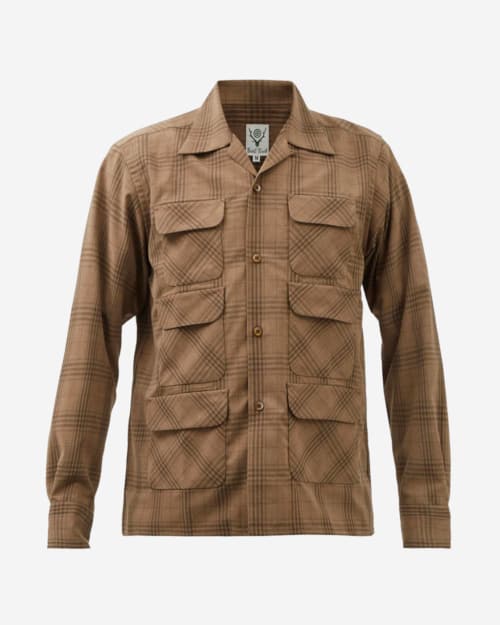
Fly fishing. Not what you might call a cool sport full of well-dressed guys, is it? Well, take a look at South2 West8’s garb before fully forming your opinion.
The brand’s fashion-forward take on fishing gear has taken the men’s fashion world by storm in recent years, reworking functional pieces of kit like pocketed vests and wading jackets into garments that wouldn’t look out of place at Fashion Week.
Nanamica
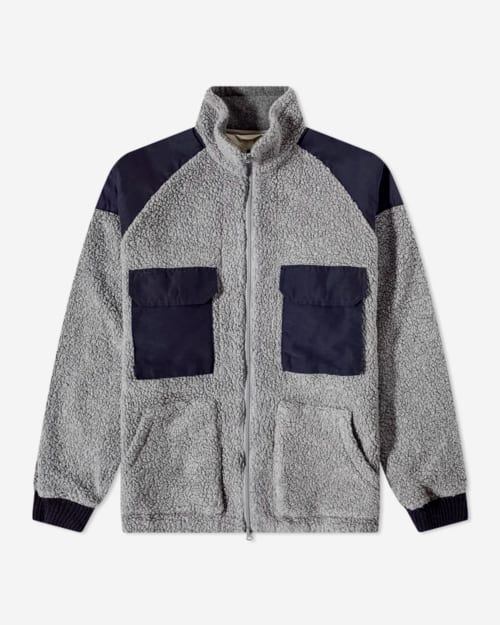
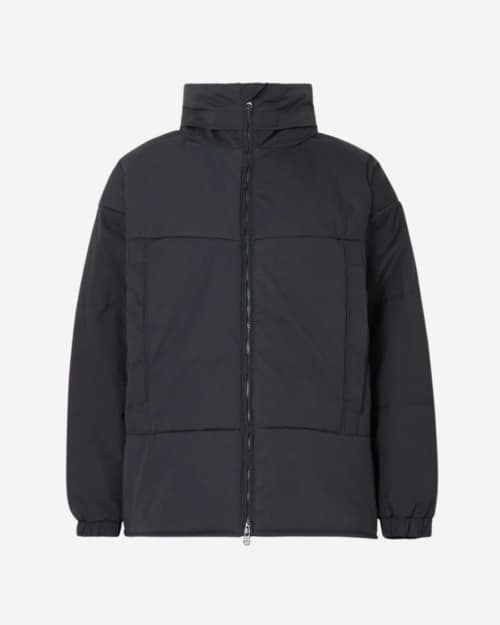
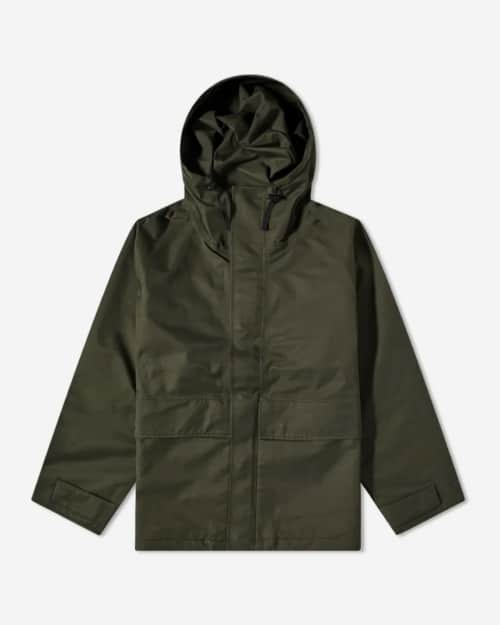
Taking inspiration from sports and utility, Nanamica creates functional yet stylish clothing using technical fabrics and manufacturing techniques borrowed from high-performance outdoor gear.
Aesthetically, it draws more on casual, urban style, resulting in a range of technical clothing that wouldn’t look out of place in the city. The brand is probably best known for its use of Gore-Tex, creating streamlined trench coats and sharp jackets from the waterproof fabric.
The North Face Purple Label
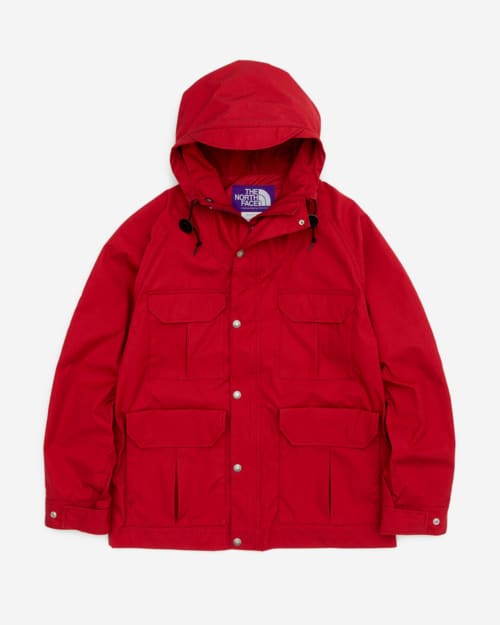
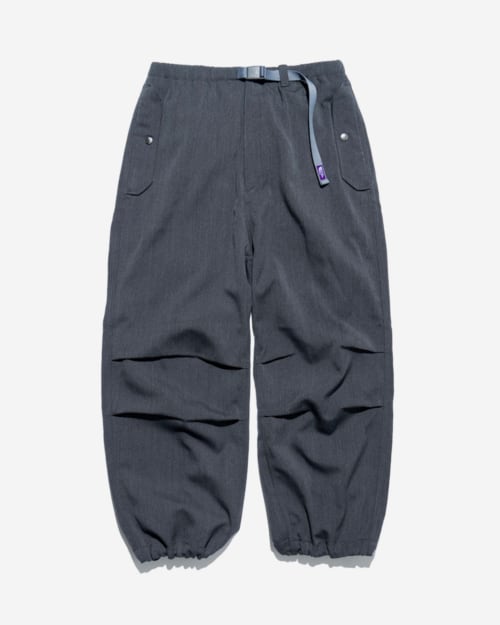
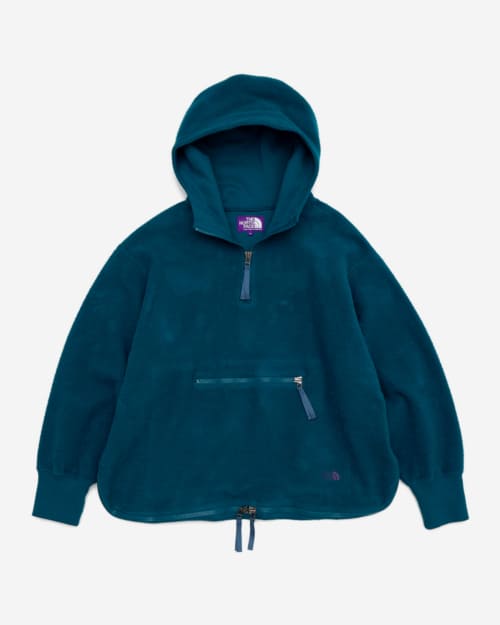
The North Face Purple Label is a sub brand of American outdoor giant The North Face that is exclusive to Japan. Under the creative direction of Eiichiro Homma, the founder of Nanamica, it gives equal attention to technical performance fabrics and casual yet fashion-forward silhouettes.
It’s highly sought after around the world due to its Japanese exclusivity, and pieces often go for hugely inflated prices on eBay, Grailed and similar reseller platforms.
and Wander
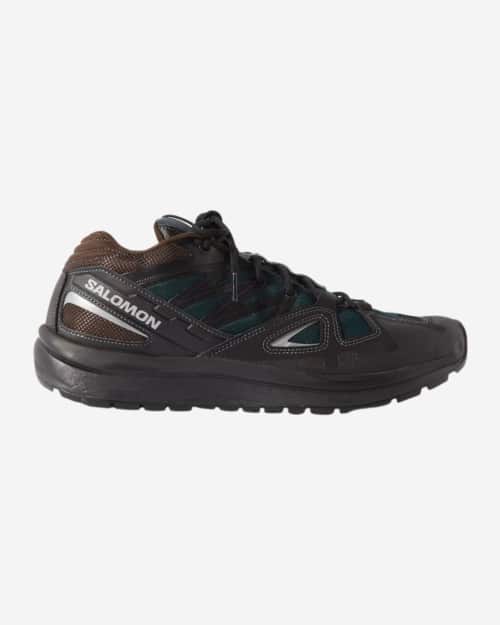
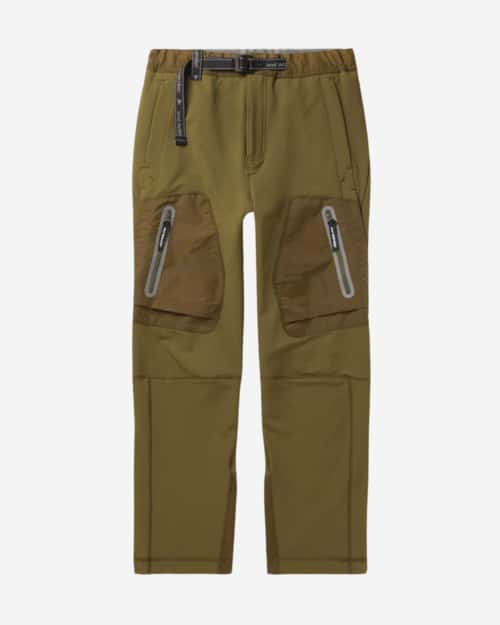
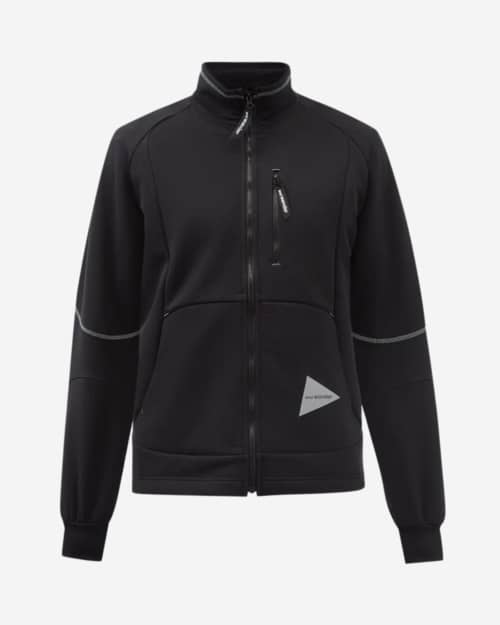
Riding the wave of gorpcore and techwear, Tokyo-based label and Wander offers a fashion-forward take on outdoor gear. Founded by two former Issey Miyake designers, the brand works with performance fabrics to create futuristic-looking garments inspired by mountain sports and the great outdoors.
Think technical jackets, utility overshirts, Salomon collabs and high-tech hiking pants with a twist.
Suicoke
Futuristic, chunky, outdoors-inspired sandals are what it’s all about at Suicoke. The brand has a unique take on the classic summer shoe, substituting traditional materials like leather for synthetics and using plastic snap buckles in place of old-school metal ones.
The result is a range of otherworldly, contemporary footwear that sits on the line between fashion and function.
Beams
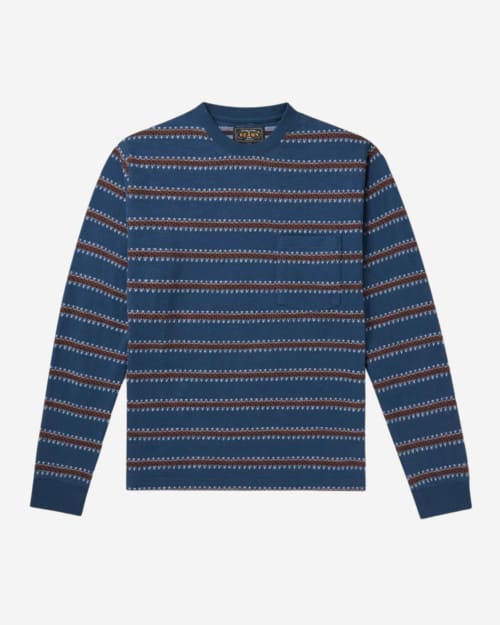
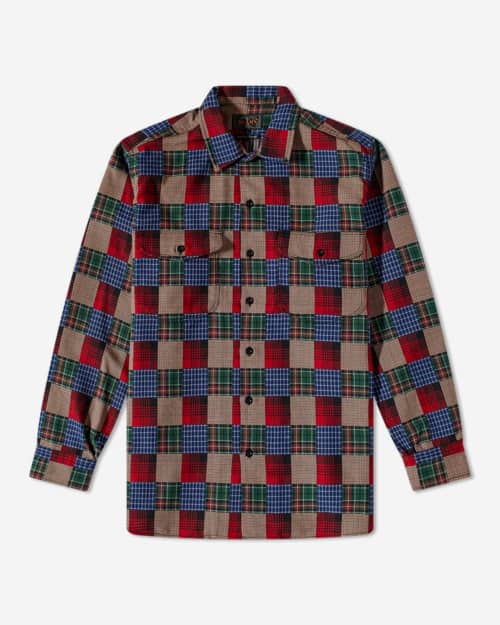
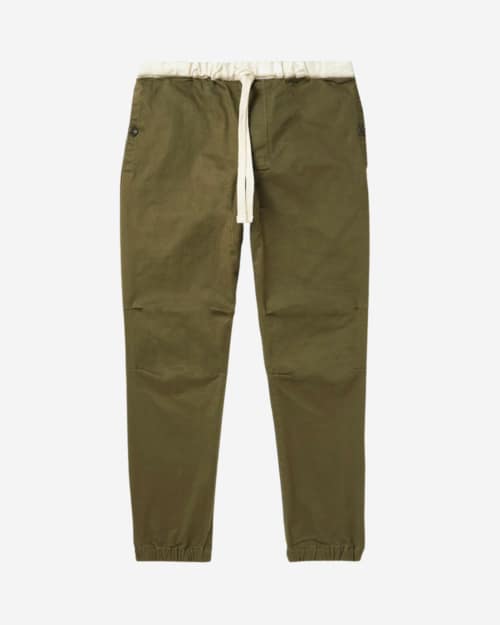
Beams is more than just a brand, i’’s an entire fashion universe. Founded in Harajuku in 1976, this legendary Japanese label has splintered off into a number of smaller satellite brands. As far as menswear goes, the most relevant ones are the classic ‘Beams’ line and ‘Beams+’.
Beams focuses on timeless casualwear, often taking inspiration from the military, preppy style, streetwear and sports. Beams+ does much the same thing, the key difference being that it leans towards edgier, more unconventional designs.
Both are fantastic labels in their own right, with tons of history and a list of high-profile collabs that reads like a who’s who of menswear.
Visvim
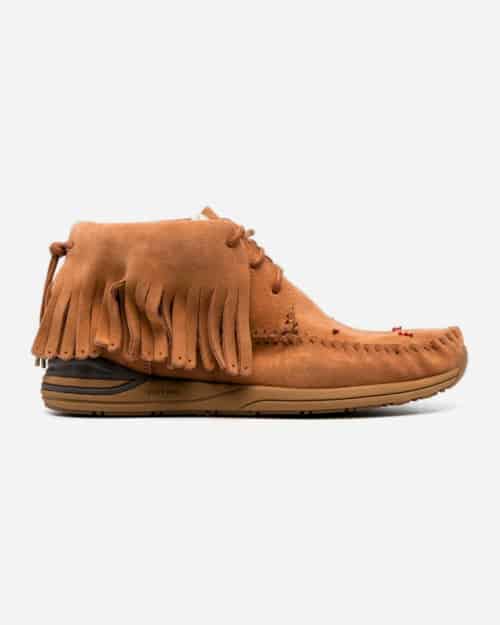
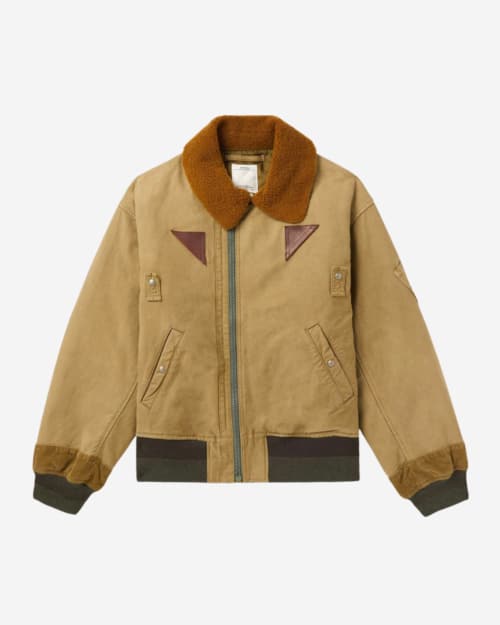
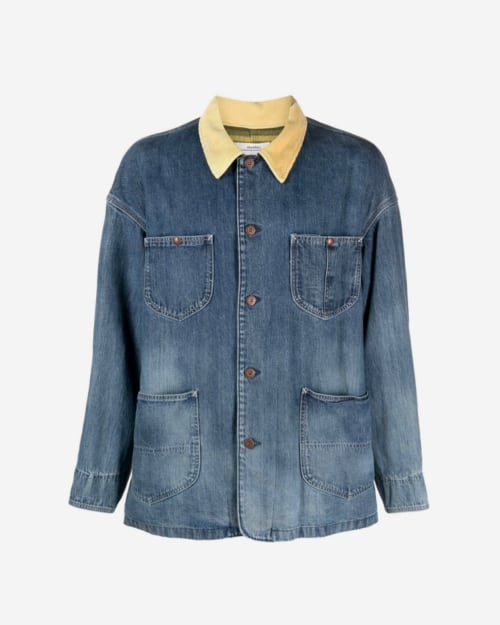
A high-end casualwear brand that fuses elements of Americana and traditional Japanese design, Visvim is as famous for its hefty price tags as it is for its clothing. Founder Hiroki Nakamura spent his youth flying back and forth to the States in search of vintage Levi’s and other American menswear treasures before taking a design post at Burton Snowboard for several years.
In Visvim, he brought together his design experience and passion for vintage American garments in a way that caught the attention of the menswear world, including a number of notable celebrities.
One of the brand’s bestselling and most iconic pieces is the FBT shoe, which is essentially an Native American-inspired fringed moccasin on top of a sneaker sole.
Wacko Maria
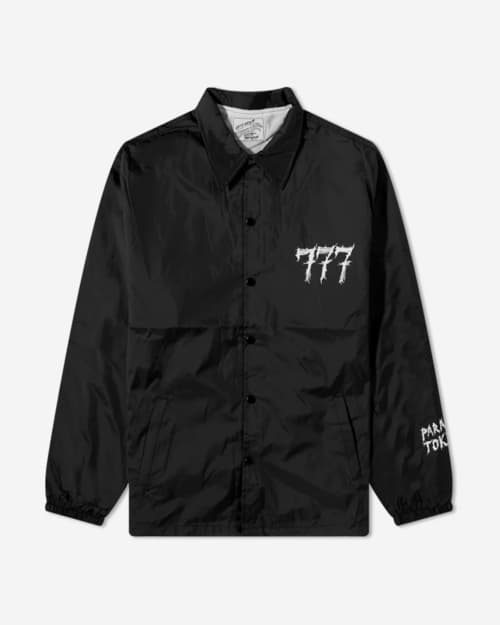
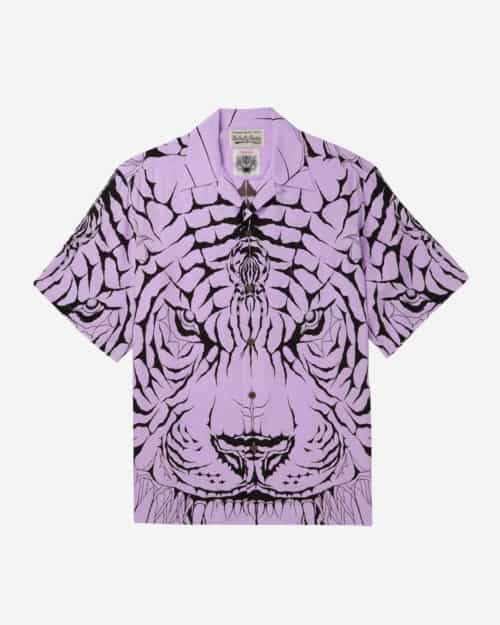
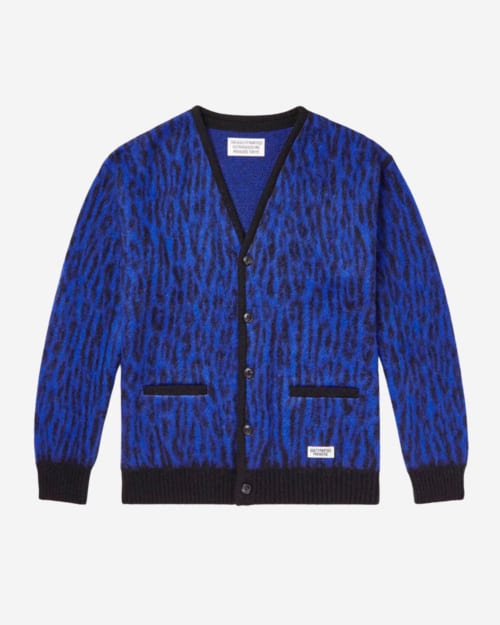
Founded in 2005 by former J-League football players Keiji Ishizuka and Atsuhiko Mori, Wacko Maria started life as a bar in a trendy district of Tokyo before evolving into a brand. The aesthetic sits somewhere between streetwear and rockabilly, often incorporating wild patterns and controversial slogans.
The canvases for these patterns and slogans are generally classic pieces like coach jackets, Cuban collar shirts and cardigans, and the label has even collaborated with lots of leading names in the underground art world.
Engineered Garments
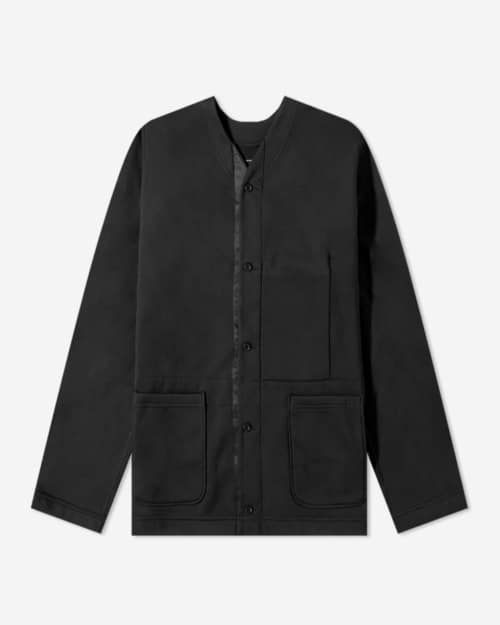
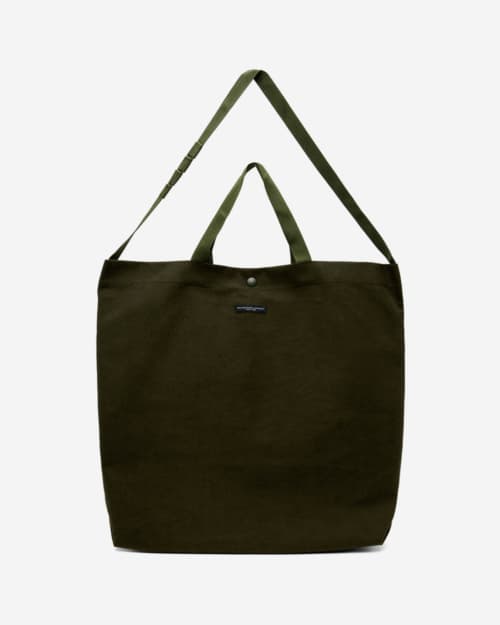
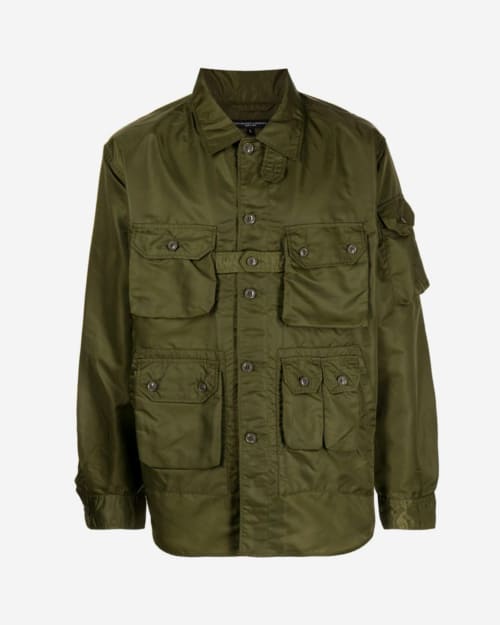
Known for its military influences and penchant for pockets, Engineered Garments is another influential fashion label that started life as a Nepenthes in-house brand. Founded by Daiki Suzuki, EG is actually based in New York, but it’s distinctly Japanese in terms of its roots, aesthetic and design principles.
The label is known for its generously cut utilitarian pieces like overshirts, smocks, cargo pants, fatigues and even soft tailoring. Everything’s done with a trademark twist through so expect to see quirky details like patchwork panelling and pockets aplenty.
Snow Peak
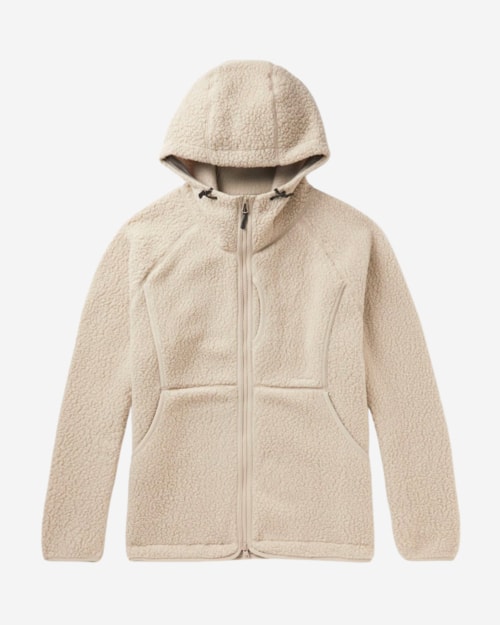
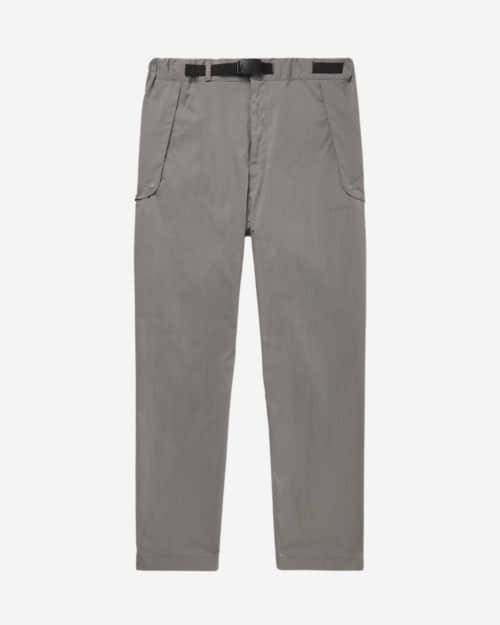
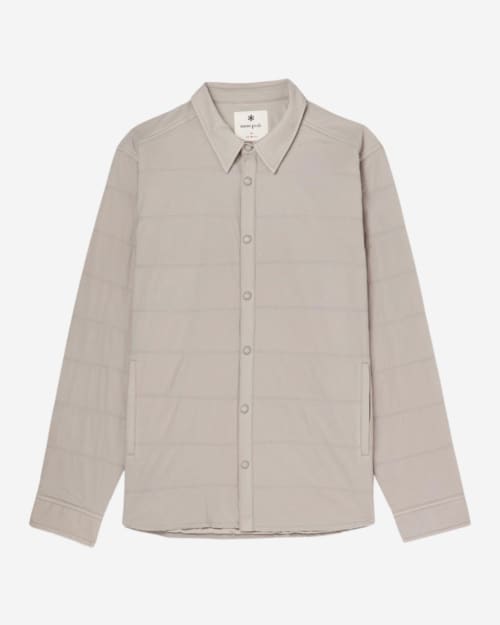
Camping is a big deal in Japan. There’s a whole style subculture and lifestyle aesthetic around it with entire magazines dedicated to the look. Essentially, Japan has been doing gorpcore since before the rest of us had a word for it, and Snow Peak is the brand at the very heart of the movement.
Founded in 1958, Snow Peak started out making high-end camping gear, including things like utensils, fire grills, pots, pans and gadgets. In later years it developed into a clothing line too, featuring outdoorsy casualwear with function at the fore, but with fashion not far behind.
Mastermind
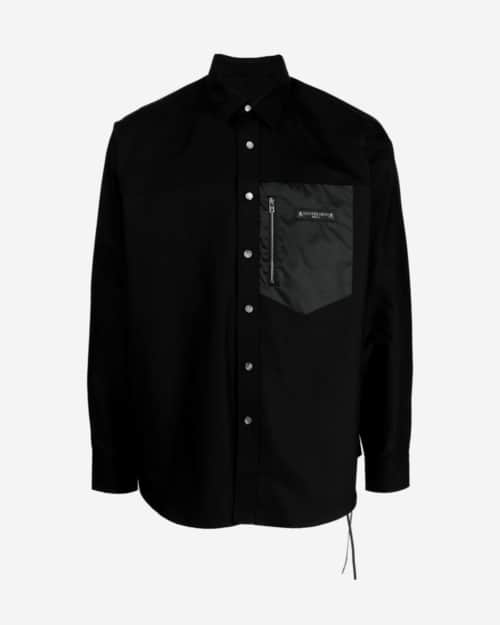
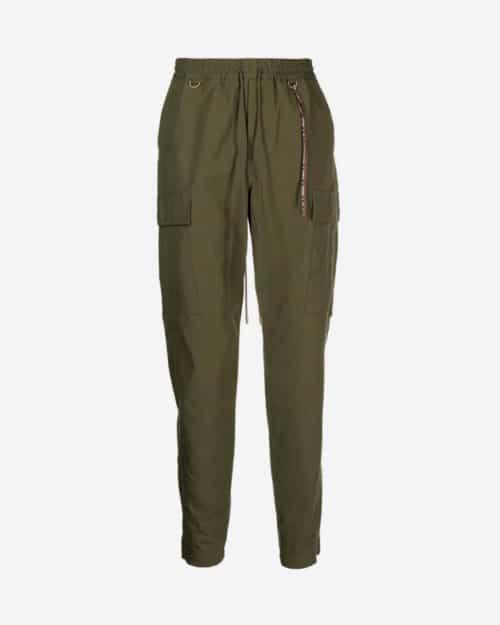
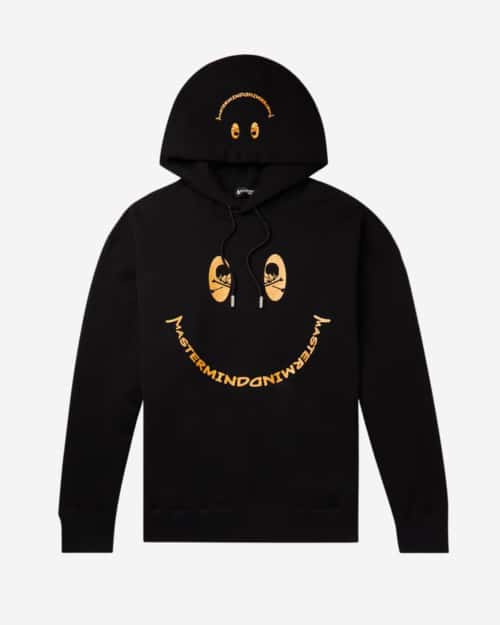
Mastermind Japan (stylised as ‘mastermind JAPAN’) is another label that was mixing streetwear and high fashion long before the most recent crossover. The brand proudly makes all of its garments in Japan with a strong focus on quality and craftsmanship, weaving in its signature skull and crossbones logo to great effect.
Mastermind was founded in 1997 by Masaaki Homma, a designer with no formal education in the field who had previously worked for Japanese fashion legend Yohji Yamamoto.
Evisu
Evisu is a name synonymous with luxury denim. The brand has been painting its iconic seagull logo onto Japanese raw denim jeans since 1991, quickly gaining a cult following that snowballed into global recognition when they were adopted by rappers and celebs.
These days the brand isn’t as popular in the mainstream as it once was, but it’s still doing its thing in the background and is undeniably a huge OG player in the Japanese streetwear scene.
